

“The truth of a thing is in the feel of it, not in the think of it.” — Stanley Kubrick.
I don’t have much time to write (we have to leave for the airport by 12:15 pm) but Chris Nolan‘s Tenet turned out to be much, much more than I expected.
I kept muttering to myself, “I’ve never seen anything quite like this before.” It’s not intentionally “funny”, of course, but I was smiling quizzically and a few times literally guffawing with pleasure. It’s all but impossible to fully “understand” (certainly upon a first viewing, and even after reading the Wikipedia synopsis I was still going “wait, what?”) but my eyes, mind and expectations were constantly being challenged and blown. Pleasurably, of course.
Nolan being Nolan it’s a visceral eye-bath first and foremost as well as a cool and dry thing, of course, but it’s truly astonishing in spurts.
The important thing is it that it didn’t infuriate me like Interstellar did. Comprehension-wise I was less engaged than I was by Dunkirk, but then Tenet is a deliberate stretch and reach — intentionally designed to expand your boundaries and to some extent leave you confounded and feeling behind the eight ball.
This is a totally riveting, first-class, thinking person’s action film — brilliant, ahead of the curve, every dollar on the screen.

SPOILER WHINER WARNING: There are…oh, God, several knockout action sequences you’ll never forget. Four or five I can think of right off the top. Three of them — the first time-reverse fight scene (which also includes the dumping of gold bars on an airport tarmac followed by the 747 slowly crashing into a hangar), the multi-vehicle highway heist, the big military assault with bombs reverse-detonating and being sucked back into the ground — left me giddy with excitement and awe, and at the same time perplexed.
I understood so little of the dialogue that I threw up my hands about five or ten minutes in. The sound mix is, in a sense, “worse” than Interstellar‘s but this time I had been pre-warned and I didn’t much care. It was so incomprehensible in terms of actual “sure, of course, I get it” moments that I said to myself, “Fuck it…just go with the aural and visual energy of it and absorb what you can and then figure out the particulars when you read the Wikipedia synopsis.”
But after reading the Wiki…well, it helped a bit but if you asked me right now to repeat the plot in basic, high-school-dropout, proletariat-guy language I don’t think I could.
And I don’t want to hear any shit from any commenters about how I’m too slow or how I need a fucking hearing aid or anything along those lines. Tenet is not intended to be specifically understood in the way that 98% of the films out there are. It’s meant to be jumped into, submitted to, absorbed, bounced off, smeared with, drowned in.
And I was hugely impressed with the performances. I was totally flat on John David Washington after seeing him in BlacKkKlansman but he’s been goosed and made over and elevated by Nolan. RBatz “acts” less than he did in The Lighthouse, but he’s completely engaging and agreeable. Kenneth Branagh‘s Russian billionaire baddy-waddy is, by popcorn villain standards, one of the best (i.e., most Shakespearean) I’ve ever seen. And Elizabeth Debicki slams the hell out of her role as Branagh’s angry and resentful wife-mom-victim — in my mind it’s the absolute finest performance she’s ever given.
Branagh: “Perhaps you’ll tell me, are you sleeping with my wife?” Washington: “No.” (beat). “Not yet.” Branagh: “How do you want to die?” Washington: “Old.” Branagh: “You’re in the wrong profession then.”
And I love that Nolan didn’t make us endure even one scene with Debicki’s young son. Much obliged!
Kubrick again: “A film is — or should be — more like music than like fiction. It should be a progression of moods and feelings. The theme, what’s behind the emotion, the meaning…all that comes later.”
“It’s the ambiguity of all art, of a fine piece of music or a painting…you don’t need written instructions by the composer or painter accompanying such works to ‘explain’ them. ‘Explaining’ them contributes nothing but a superficial ‘cultural’ value which has no value except for critics and teachers who have to earn a living.”
Review excerpt, The New Yorker‘s Anthony Lane:
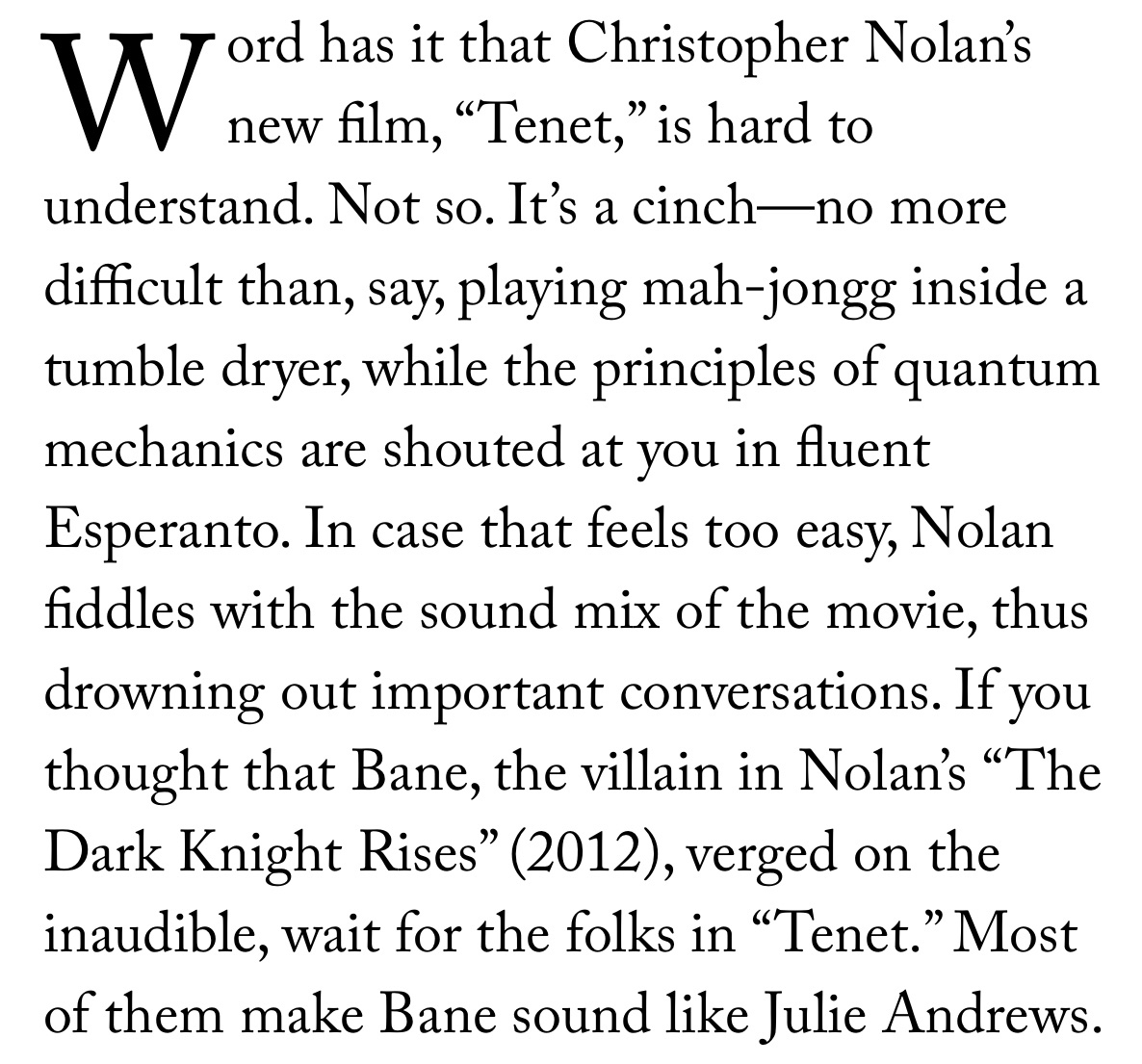
Friendo: “I read your cowardly praise of Charlie Kaufman’s film, which is awful.”
HE: “My praise of the Kaufman film was cowardly?”
Friendo: “Yes, because it’s a bad movie and no one will say so.”
HE: “No, it’s a nervy, disturbing nightmare vision of rural America and weird parents, and the lingering effect of a dark, suppressive childhood, and a vision of loneliness and despair and the dreams that are set free by returning to the homestead, especially when the music of Oklahoma! is heard along with the dancing of Agnes de Mille…”
Friendo: “Over-indulged, undisciplined navel gazing. The only reason people aren’t giving it proper criticism is the Paul Thomas Anderson syndrome — fear of challenging someone who’s revered. Greta Gerwig, PTA, Safdies and now Kaufman get a free pass from critics. I do not know why.”
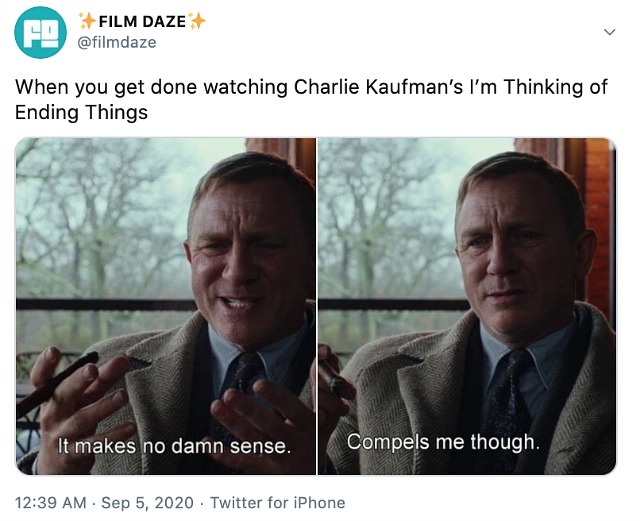
David Fincher‘s Mank is obviously something else. Consider the rapier wit, the pedigree, the Erik Messerschmidt cinematography, the yesteryearness. I’ve read an early draft of the script, and I know it’ll be brilliant. And I can’t adequately express how the prospect of spending two-plus hours with the God-like Herman Mankiewicz delights me to the core.
Even merged with the physicality of the puffy-faced, pot-bellied Gary Oldman in those 1940s baggy suits, tent-like dress shirts and fat ties, I tingle like Peter Ustinov‘s Lentulus Batiatus. Seriously.
This might turn out to be one of the greatest “head” movies of the 21st Century, although in a 1960s Bob Rafelson sense. Seeing it stoned may be a requirement.
What I don’t understand is why Fincher didn’t cast Mank with a Hamilton attitude or…you know, with the liberated, cast-off-the-old-ways, rethink-the-musty-past mindset of Ryan Murphy’s Hollywood or Armando Iannucci‘s The Personal History of David Wokesterfield. Where in this old time Hollywood-white-guy realm of are the African Americans, Latinos and Asians, Mr. Fincher? How can we hope to move forward as a culture if we don’t cast period films according to our own present-tense values and determinations?
The problem is not just Fincher but also Joel and Ethan Coen, who notoriously ignored the Khmer Rouge casting philosophy when they made Hail, Caesar!. Just ask Jen Yamato — she explained it fully four years ago.
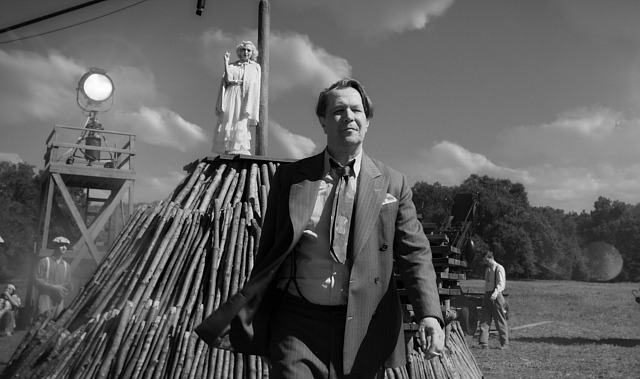

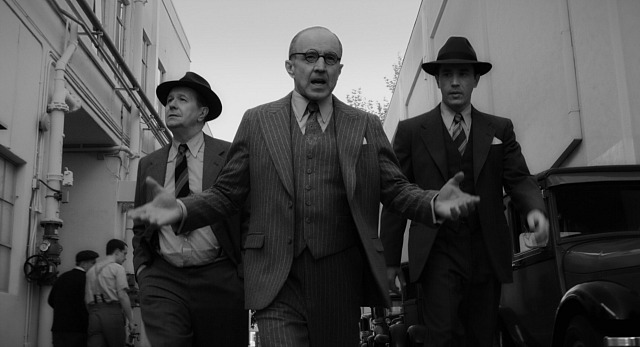
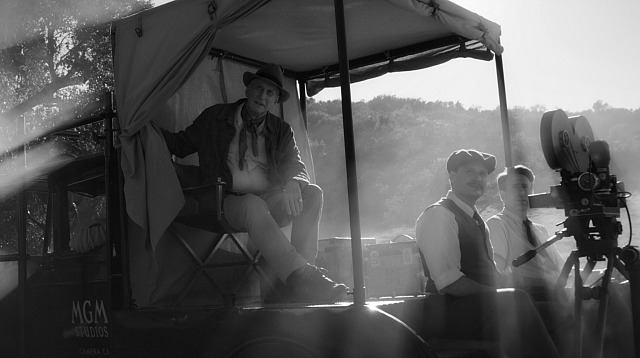
I’m basically an Amazon Prime, Netflix, HBO Max, Criterion Channel, Hulu, iTunes movies and Vudu kind of guy. Oh, and Apple +. Ixnay to Disney +.
